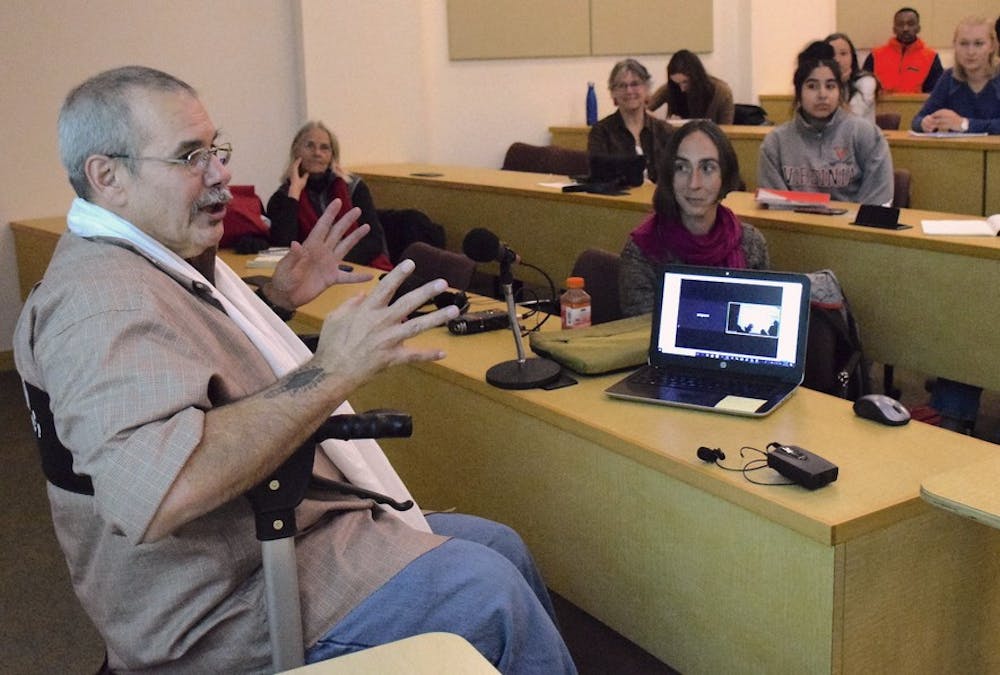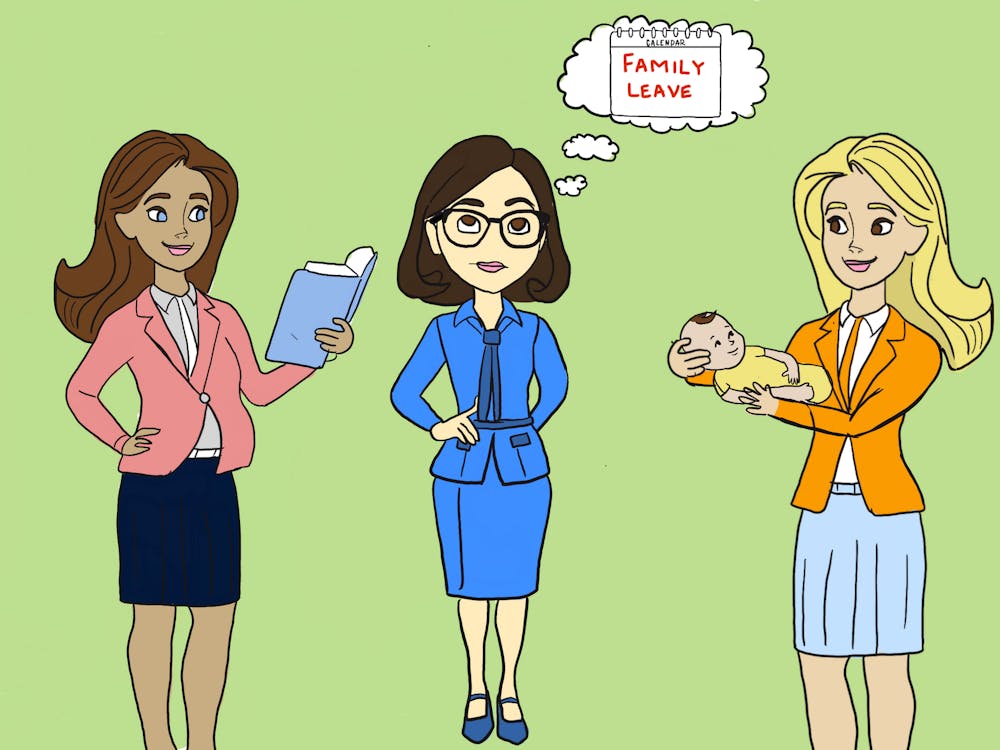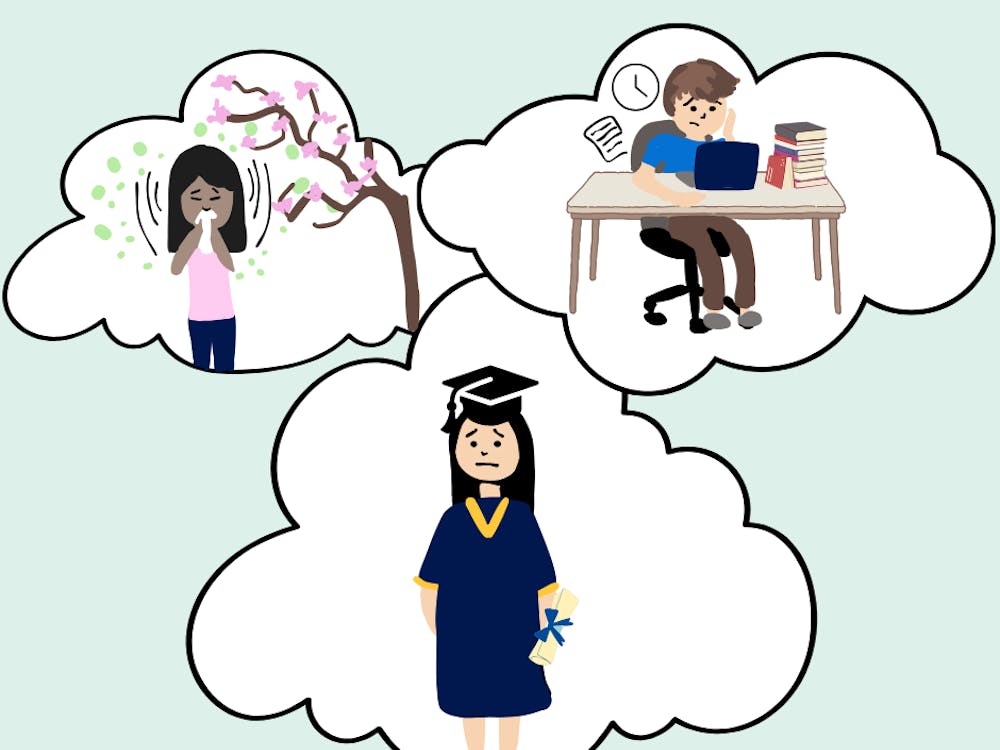In 1979, then-21-year-old scallop boat worker Joe Giarratano was sentenced to death for a double murder and rape he says he never committed. After nearly 40 years of fighting the system from the inside, he was released on parole last December. Lecturer Franziska Oertle’s Tibetan Buddhism course spent their class on March 19 hearing his story.
“In Buddhism, we talk about what we call the six perfections and one of the perfections is about being patient,” Oertle said. “It’s much more of an attitude about not getting upset, not getting angry in the face of hardship. I found out about [Giarratano] a couple months ago. My friend said … he practices Tibetan Buddhism and this is what kept him alive in prison.”
Oertle said she realized immediately she wanted Giarratano to talk to her students.
Since Giarratano was taken off the many drugs the state had placed him under in 1983, his case has garnered attention from new outlets, lawyers, citizens, legal organizations and celebrities like actor Jack Lemmon and conservative newspaper columnist James J. Kilpatrick.
When Giarratano was first convicted of the crime, he was using heavily and the state insisted he be put under the influence of thorazine, an antipsychotic. It seemed there was not much hope for Giarratano the first few years after his arrest — heavily drugged and barely conscious at his trial, he actually chose to drop his appeals in 1981 and was told he was unfit to be executed.
It was throughout 1982 and 1983, years after his conviction and after receiving so much public attention, that Giarratano realized the evidence discovered at the crime scene, including bloody footprints, semen and fingerprints, did not match his own and that he had been sentenced to death after a half-day trial that had included circumstantial evidence. A few years after the trial, he was contacted by Richard Bonnie, a lawyer working at the University at the time. Bonnie recruited Ward Silk, a local attorney with only a few years of experience who was already handling multiple death row cases. Still, Bonnie and Silk took Giarratano’s case. They eventually brought in Marie Deans, founder of the Virginia Coalition on Jails and Prisons, to help.
“Marie basically shoved a law book in my face and said you need to start studying this, this is how you fight these people,” Giarratano said. “From that point on I began studying the law.”
Because of this newfound dedication to learning the law, he helped change conditions for death row inmates, brought a case to the Supreme Court that gave death row inmates access to attorneys and helped convince the courts that a fellow death row inmate, Earl Washington, Jr., was innocent of his alleged crimes. He also created a law library, facilitated peaceful resolution courses and brought awareness to the public about the greater need for attorneys to work these cases.
“Resentment is hard, it’s what I was telling the Tibetan Buddhism class, there was a lot of anger for a long time and [it] was destroying me,” Giarratano said. “I got to a point where I had to realize prior to all of this I was a criminal. It’s what I grew up in, it’s what I knew and I got away with a lot of stuff. And it hit me one day, the universe, it couldn’t get me for all the other stuff I did but to get my attention it put me through this.”
Oertle said this is exactly the reason she was so keen to have him speak to her class, despite him not explicitly describing himself as Buddhist. She felt he embodied the practices of Buddhism and the positive benefits they could have even in the most difficult of situations.
“He stopped blaming outer conditions and unfair justice systems and guards who were giving him a hard time,” Oertle said. “He stopped asking, ‘What can the world do for me?’ and started asking, ‘What can I do for the world?’ This is an unbelievable change.”
He claims that serious meditation saved his life during his eight years in solitary confinement and helps him keep track of his purpose even today.
“It got to the point where I would lose touch with reality, I would hallucinate and I really had to focus on my meditation practice to keep my sanity,” Giarratano said. “And focusing like that has a way of focusing your attention, clearing the air and making you be real with yourself. And I came to realize that if I did that [committed suicide] it was probably the most self-centered thing I could do because it was really all about me, and not considering the impact on it would have on all my supporters, all my friends.”
Though the case has still not been closed, Giarratano is now on parole and lives in Charlottesville. He is working with the University’s Law School’s Innocence Project, helping research and evaluate other cases as they did for him, in the hopes that he’s leaving a positive impact on the world.







